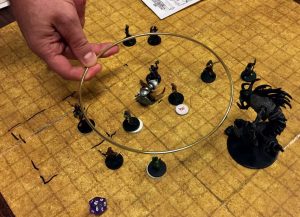When you are playing and/or running the game, do you use saving throws to change the fiction? That is to say, does the result of the saving throw retcon the outcome of a thing? ...
As a way to explain what i mean, here's an example:
...
As an alternative, imagine the PC is banging there 10 foot pole on the ground in front of them and this is supposed to grant them advantage on the perception roll (or passive perception check, or whatever the mechanism is). ...
I guess what I am asking is, when you run D&D, do you a) treat saving throws as a retconning of the fiction that has been narrated, or b) do you (at least endeavor to) stop the narration at the point of calling for the saving throw.
Neither of the examples you give seem like they describe a "retcon" in any way that I have used that word before. Your question, as stated, does not make sense to me.



